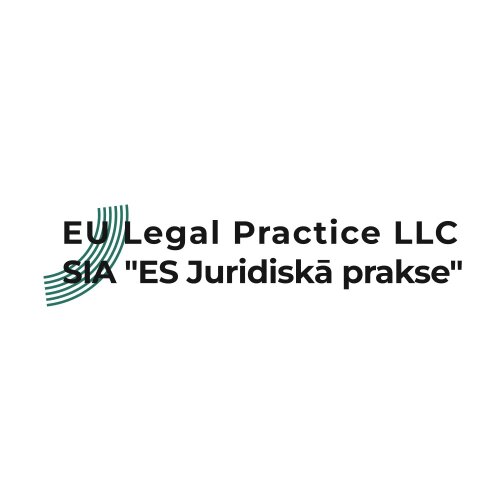Best Bankruptcy Lawyers in Riga
Share your needs with us, get contacted by law firms.
Free. Takes 2 min.
List of the best lawyers in Riga, Latvia
About Bankruptcy Law in Riga, Latvia
Bankruptcy law in Riga, Latvia, designed to assist both individuals and businesses facing financial difficulties, is governed primarily by the Insolvency Law. This legal framework provides structured procedures for resolving insolvency issues efficiently and fairly, ensuring protection for both creditors and debtors. The law outlines processes for debt relief, asset liquidation, and restructuring plans, offering a path towards financial recovery whether through liquidation or reorganizing the debtor's obligations. It also strives to balance the interests of all parties involved, fostering a conducive environment for economic stability and growth.
Why You May Need a Lawyer
Engaging a professional lawyer in bankruptcy cases can be critical for navigating the significant complexities involved. Situations where a lawyer's expertise may be necessary include, but are not limited to:
- Understanding eligibility and filing requirements for bankruptcy;
- Developing a strategic approach for debt resolution;
- Negotiating with creditors and managing assets during the bankruptcy process;
- Handling court procedures and legal documentation;
- Resolving disputes that may arise between the debtor and creditors;
- Navigating restructuring plans for businesses;
- Safeguarding rights and interests efficiently within legal frameworks.
Local Laws Overview
In line with the Insolvency Law of Latvia, key aspects pertinent to bankruptcy in Riga include:
- Eligibility Criteria: Clear delineations exist based on the type of debtor, such as individuals, legal entities, and entrepreneurs, each subject to distinct qualification requirements for initiating bankruptcy proceedings.
- Types of Insolvency Proceedings: Major categories include legal entity liquidation, legal protection procedures, and natural person insolvency solutions.
- Debt Restructuring: Provides options for restructuring debts to allow debtors to stabilize their financial standing and avoid liquidation.
- Asset Liquidation: Enforces structured guidelines for distributing a bankrupt entity's assets among creditors in the process of insolvency resolution.
- Involvement of Creditors: Clearly specifies creditors' rights and obligations, including claims registration, participation in creditors' meetings, and influencing reorganization plans.
Frequently Asked Questions
What is the difference between individual and corporate bankruptcy in Latvia?
Individual bankruptcy pertains to natural persons and focuses predominantly on personal debt relief, while corporate bankruptcy involves procedures specific to legal entities and aims at settling debts through liquidation or restructuring of the company.
How long does a bankruptcy process typically take?
The timeline can vary significantly based on the case's complexity, but generally, it may take several months to a few years to complete the bankruptcy process, from filing to resolution.
What happens to my assets in a bankruptcy proceeding?
In bankruptcy, assets are evaluated and may be liquidated to pay off creditors, but some personal belongings can be exempt depending on local law specifics and case circumstances.
Can I keep my property during bankruptcy?
Retention of property is possible under certain conditions such as reorganization plans or specific exemptions that can protect essential personal assets while complying with legal regulations.
Will I lose my business if I file for bankruptcy?
Not necessarily. Options like debt restructuring are designed to help debtors retain control of their business and continue operations while settling financial obligations under a court-approved plan.
How does bankruptcy affect my credit rating?
Filing for bankruptcy typically results in a significant negative impact on your credit rating. However, it also provides an opportunity to rebuild creditworthiness once debts are resolved.
Are debts discharged or forgiven after bankruptcy?
Many, but not all, debts can be discharged under bankruptcy, such as unsecured loans and credit card debts. Certain liabilities like taxes or alimony may remain post-proceeding.
How can creditors oppose a bankruptcy filing?
Creditors can object or submit claims contesting aspects of the bankruptcy case, such as disputing the debtor’s eligibility, the proposed distribution plan, or requesting specific reliefs within legal boundaries.
What is a bankruptcy trustee's role?
A bankruptcy trustee supervises the process, assesses assets, manages their liquidation if applicable, and distributes proceeds to creditors based on established priorities.
What legal protections do I have during bankruptcy?
Bankruptcy provides an "automatic stay" that halts most collection activities against you, offering protection from creditors' immediate enforcement actions during the proceedings.
Additional Resources
For further guidance, consider reaching out to the following resources:
- Latvian Insolvency Control Service: Oversight body that monitors and ensures the proper enactment of insolvency proceedings in Latvia.
- Local Bar Associations: Can provide contact details for attorneys specializing in insolvency and bankruptcy law.
- Support and information centers such as Consumer Rights Protection Center (PTAC): Offering advice and general guidance for financial distress situations.
Next Steps
If you require legal assistance in bankruptcy:
- Consult a Professional: Seek a consultation with a lawyer specializing in bankruptcy for specific advice tailored to your situation.
- Assess Your Situation: Gather relevant financial documents and assess your debts and assets thoroughly.
- Prepare to File: Ensure you meet all eligibility criteria and compile the necessary paperwork before initiating the process.
- Attend Information Sessions: If available, attend seminars or workshops on insolvency procedures to deepen your understanding.
Engaging legal counsel can significantly enhance the handling of your case, providing necessary insights and support throughout the bankruptcy process.
Lawzana helps you find the best lawyers and law firms in Riga through a curated and pre-screened list of qualified legal professionals. Our platform offers rankings and detailed profiles of attorneys and law firms, allowing you to compare based on practice areas, including Bankruptcy, experience, and client feedback.
Each profile includes a description of the firm's areas of practice, client reviews, team members and partners, year of establishment, spoken languages, office locations, contact information, social media presence, and any published articles or resources. Most firms on our platform speak English and are experienced in both local and international legal matters.
Get a quote from top-rated law firms in Riga, Latvia — quickly, securely, and without unnecessary hassle.
Disclaimer:
The information provided on this page is for general informational purposes only and does not constitute legal advice. While we strive to ensure the accuracy and relevance of the content, legal information may change over time, and interpretations of the law can vary. You should always consult with a qualified legal professional for advice specific to your situation.
We disclaim all liability for actions taken or not taken based on the content of this page. If you believe any information is incorrect or outdated, please contact us, and we will review and update it where appropriate.













